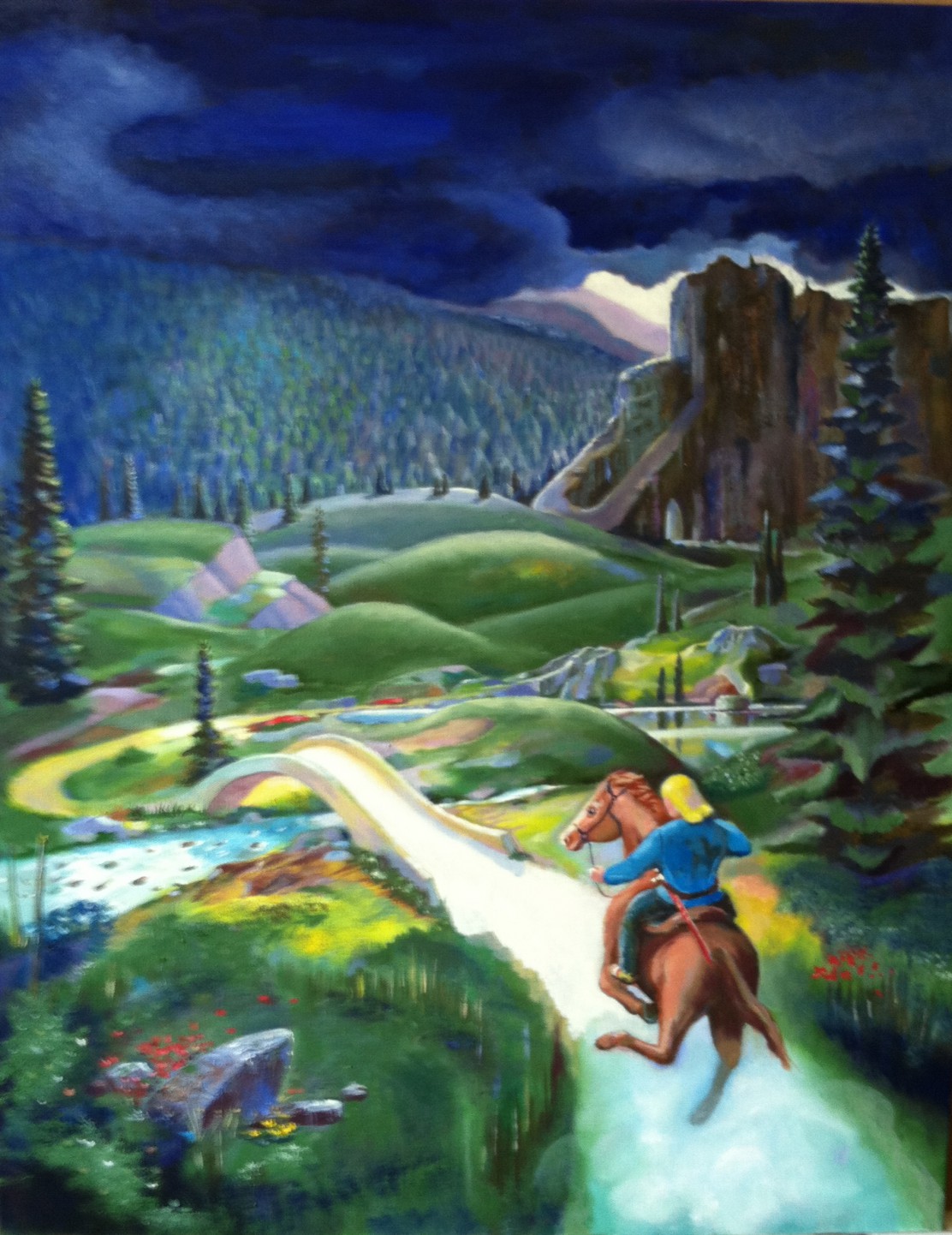The Trials for male orcs involve a grueling set of tests designed to place the orc correctly in orc society. It is here that the Sheshua try to determine if the orcling has any special abilities or gifts. If the child appears to have gifts he is set aside to undergo the Gift Trials, for orcs who might be candidates to become members of the Orc High Council. Orcs who are born with no magical tendencies or special abilities undergo the Blood Trials, the passage to become a warrior and perhaps a Tron later on. Orcs who fall in between or it is uncertain where to be placed but appear to be useful are trained to be Sheshua.
Orcs who are larger and much stronger and intelligent are considered candidates for becoming a Tron (a superior orc) who answers only to the warlord. Trons help the warlord with strategy, organizing legions, arming and prepping their warriors and controlling the clan in general during times of war. The majority of Trons are above seven feet and are athletically built for intense warfare against a variety of opponents. To become a Tron an orcling must first pass the Blood Trials. Depending on how he scores, a warrior can be given Tron status, but this is the exception to the rule; most become standard warriors. Trons are exceptional warriors who are candidates for becoming the future warlord of their clan. Becoming a Tron automatically means annual breeding rights with the females.
Orcs are taught not to fear death but to welcome it. Suicide, however, is thought to be a coward’s end, while death in battle is considered glorious. Orcs who have been badly wounded or have become too old are honorably put to death. Orcs believe that when a warrior dies honorably he goes to the Great Mountain, which is the gateway to the Spirit Realm. The Spirit Realm is the collection of the greatest warrior souls, where they serve as ancestral guides to the living.
The orcs of Oringard are one clan of the Orc High Council of Nubrince. It is not unheard of for clans to go rogue and break off from a High Council, such as was the case with the orcs of Kasmoon, who conquered the upper half of the divided ancient kingdom of Paia, then appointed a king and fashioned an entirely different orc society separate from the High Council. The Nation of Oringard is among the much larger and more successful clans who adhere to the Orc High Council of Nubrince. The orcs were triumphant in their invasion of Oringard, driving out the elves in 460 ACW. However, early on in their history, the orcs of Oringard began to squabble over what land to conquer next. Most wanted to press west into Damir, where the ground could be cultivated, yet a segment of their people saw the Golden Mountains as a place to take refuge and launch attacks from higher ground. This division caused a civil war within Oringard, one that lasted nearly forty years and decimated the clan.
The orc civil war within Oringard ended with the losing clan wishing to drive north to go rogue, defying the High Council, which ruled in favor of the orcs staying in Oringard and eventually conquering Damir. Heading north, this rogue orc clan stumbled upon the dwarven fortress of Gilstad in 525 ACW and attacked it, launching the 7th War of Damir. But the war was brief and the orcs were badly defeated. Forced to retreat, their shattered army went north into the Golden Mountains and were never heard from again. The orcs that stayed behind in Oringard spent the next seventy years forced to re-populate and rebuild defensive structures that had been totaled during the civil war.
The orcs did not make headway against Damir until the warlord Phumbaas, who organized the first ever massive orc invasion to cross the Paia and marched west toward Merrimont, the city of the elves, in 601 ACW. The 10th War of Damir changed the land and gave the orcs tremendous confidence that they would eventually take Damir, despite the loss. Even with Phumbaas’ defeat, the orcs had made their point: they were to be a thorn in Damir’s side for years to come.
Mal Orah-
The warlord and/or his Trons issue battle commands through the beats of orc drums. The Mal Orah, which means “Death Charge”, is a command given to attack with maximum effort. Typically, the Mal Orah is sounded for a full verse before the orcs actually charge, as a means of intimidating their enemies prior to assault. The Mal Orah consists of slow beats that gradually get faster and louder until they are done in rapid succession. The Death Charge is described as deafening, as the orcs usually use an abundance of drums, which beat together at once. The Mal Orah is also used as a form of distraction, the noise making it difficult for their enemies to communicate.
Shogue Language-
The native tongue of orcs everywhere is the Shogue language. The orcs refused to adopt the Druish language, yet it was still learned in some circles and is still taught among orcs of high positions such as Trons. Considered the language of the Juhas, orcs only speak Druish rarely or for reconnaissance purposes. Shogue is a slow language, as it is more important to pronounce the word than to speak it quickly. Partly due to their militaristic society, orcs want to ensure that their words are heard and understood. Because Shogue is relatively simple and slow it is among the easiest languages for other races to eventually master.
Orcs in Age of Thunder:
- Kazul
- Gozma
- Noxima
- Crohl
- Mogabi
- Mutawa
- Morgon
